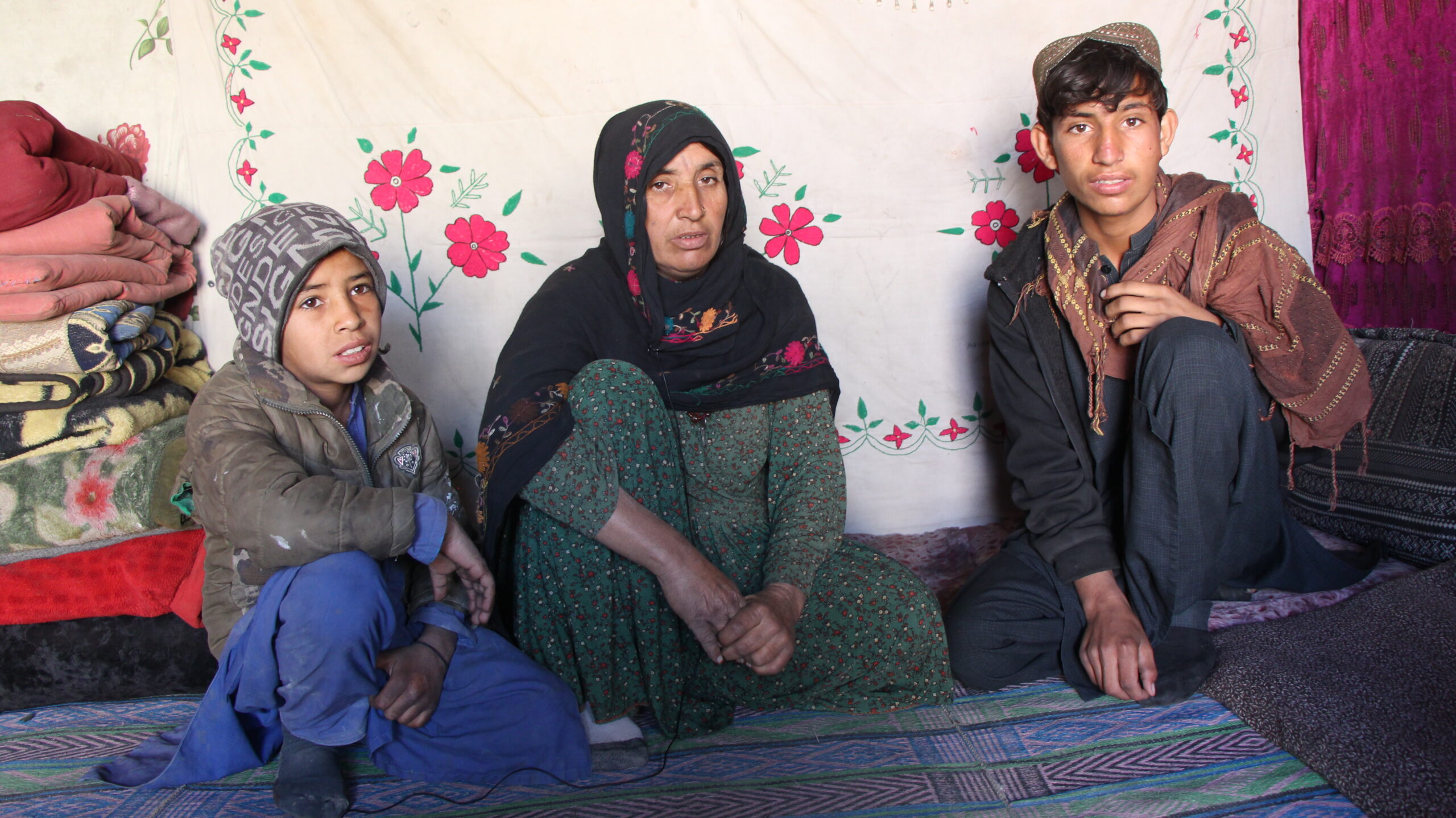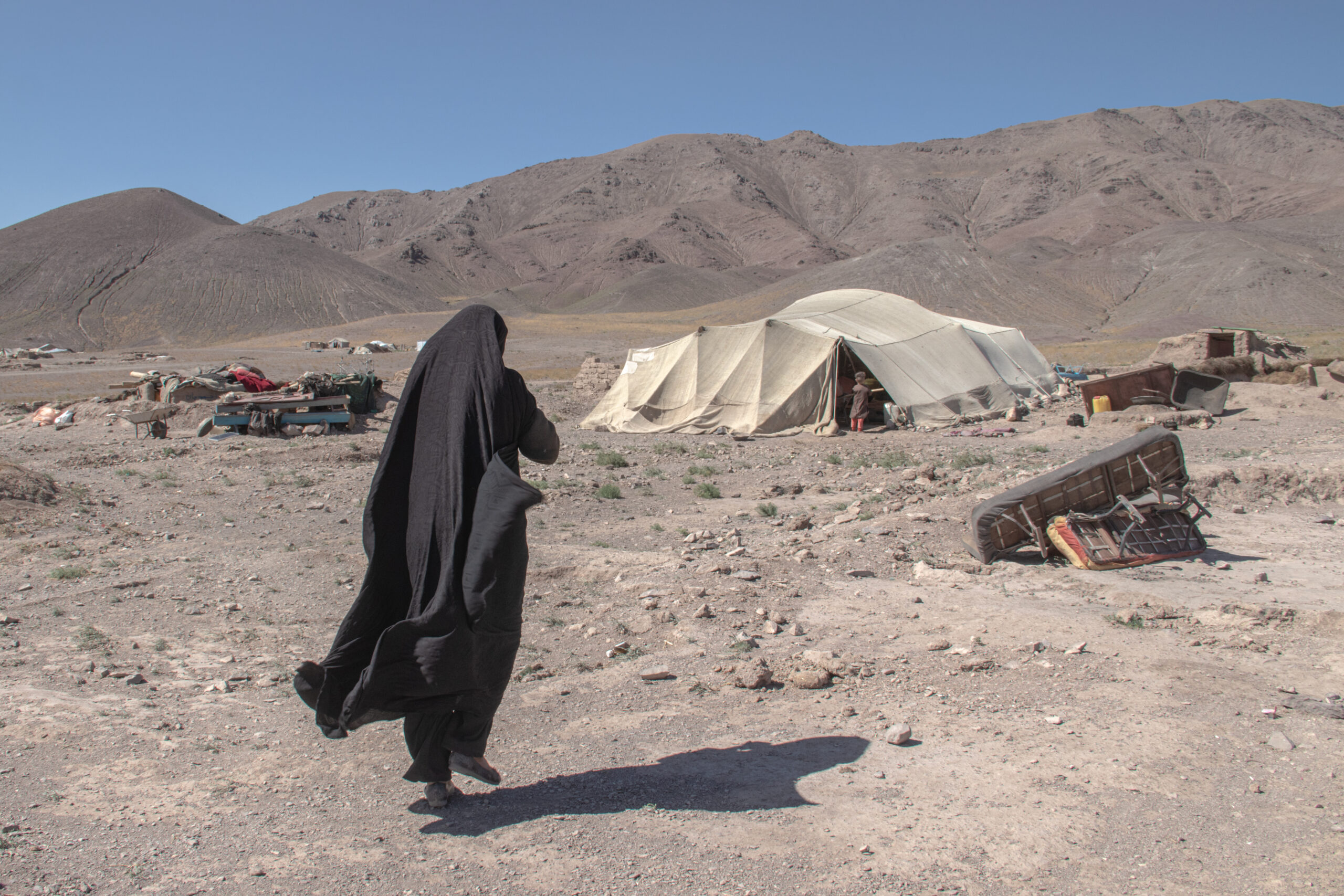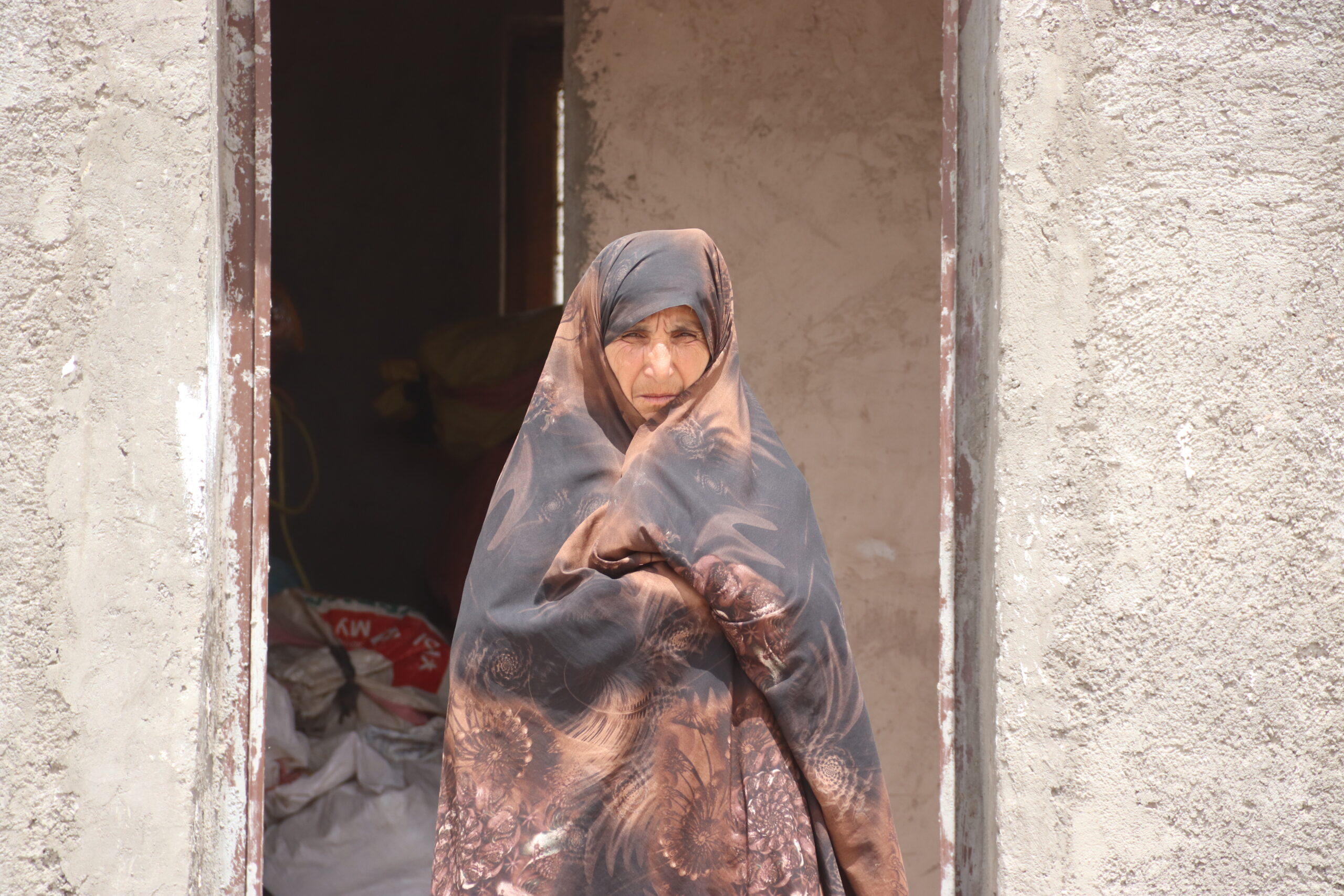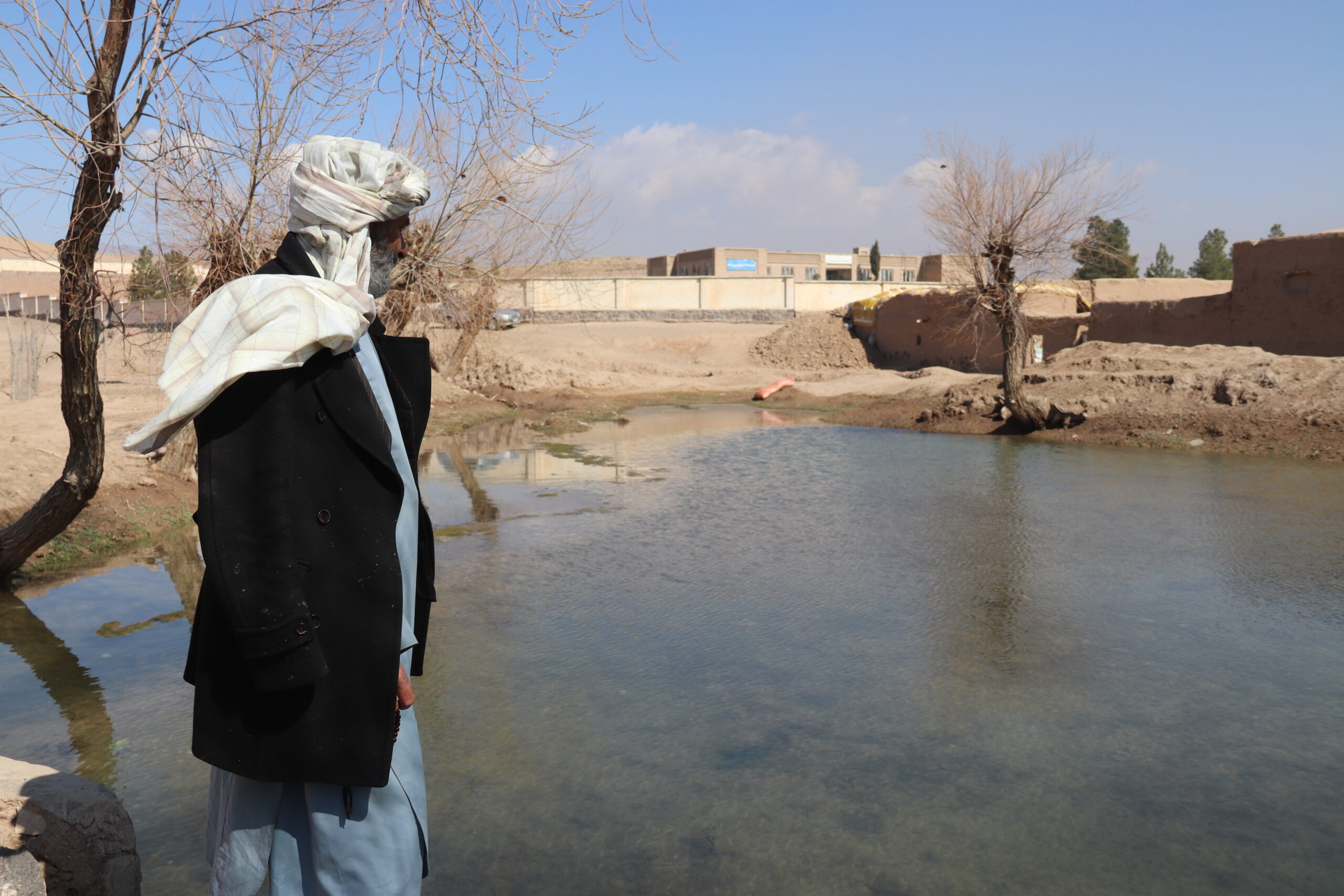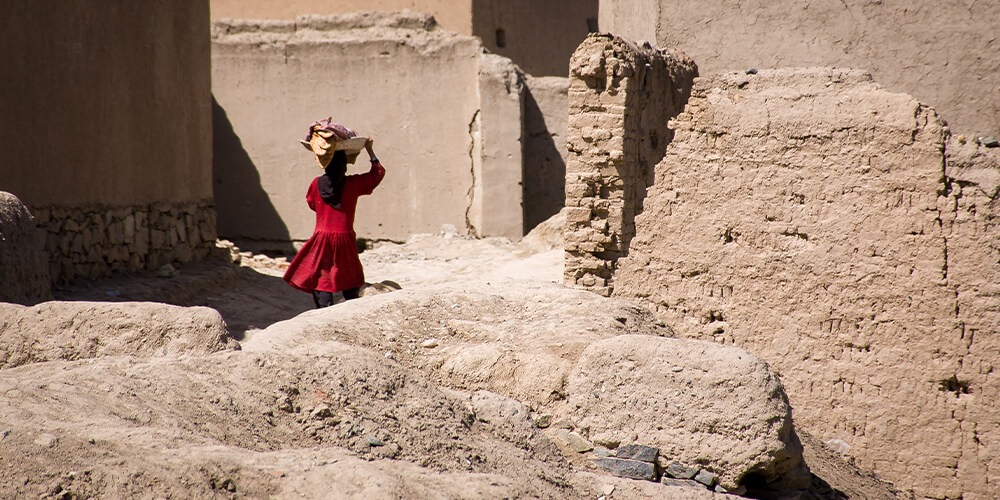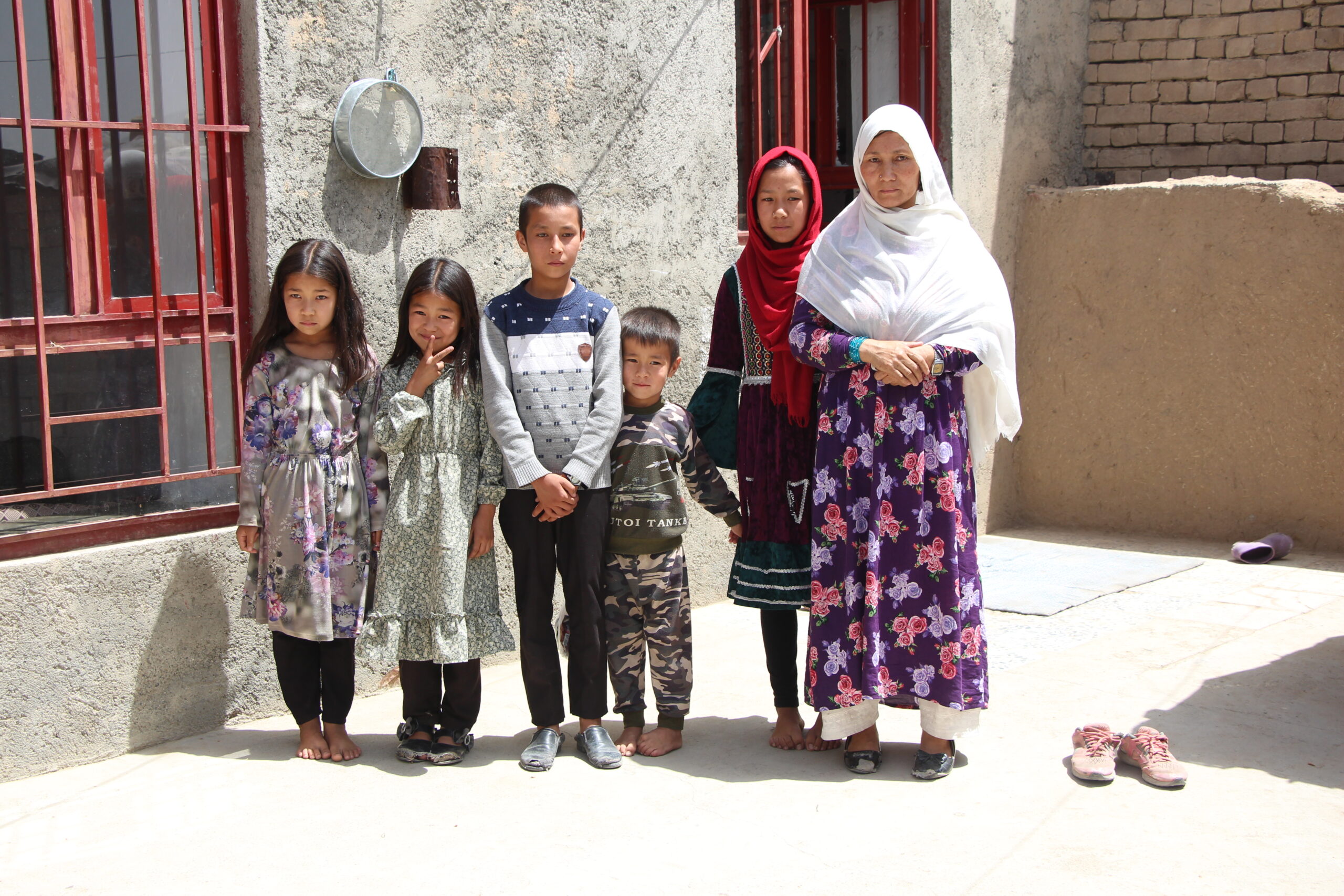
08.18.23
Afghanistan 2 Years On: A Mother’s Struggle to Support Her Family
As Afghanistan approaches 2 years since the Taliban returned to power, we share the stories of some of the resilient communities Islamic Relief is supporting through extreme hardship.
Khadija, a 35-year-old single mother, lives with her 5 children in a remote neighbourhood on the outskirts of Kabul. Her husband abandoned the family after becoming addicted to drugs – an unfortunately common occurrence in Afghanistan. Unable to afford the rent on their home, Khadija and her children now live in a single room that her elder brother vacated for the family’s sake.
“I’m left with the responsibility of taking care of all these children – 3 are daughters,” Khadija says. “The house is small for 6 of us. We don’t have proper bedding. It’s just rags and mats. During the winter, it gets so cold that I’m afraid we may die. We can’t afford either cooling or heating systems”.
Obstacles to earning a living
Khadija treks 3 kilometres every morning into Kabul, seeking housekeeping jobs with well-off families. She cannot afford public transport and struggles to make ends meet with the money she earns from this work. On some days she makes no money at all.
Restrictions imposed by authorities as well as social norms severely limit women’s employment opportunities, making life extremely difficult for families like Khadija’s without adult men to share the burden.
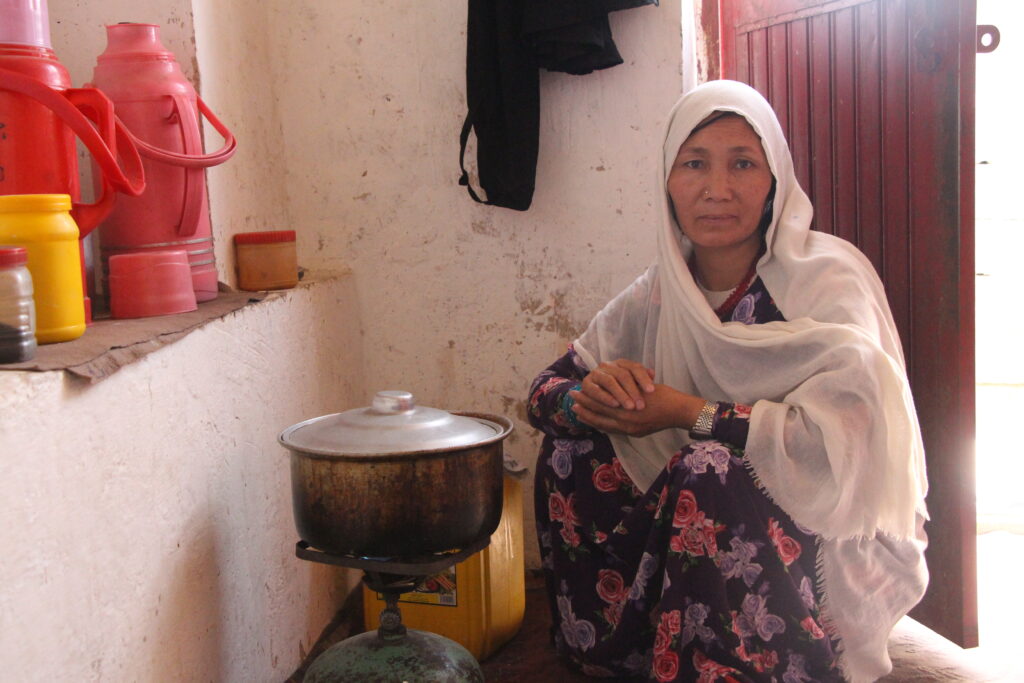
“I found myself alone to provide for my children. We only have 2 kilograms of potatoes in stock [at home]. We eat the same food every time. No new meals.” Khadija eventually had to make the difficult decision to pull her eldest daughter, 15, and son, 12, out of school so they could also seek work to help support the family.
The children are now employed in a carpet weaving shop, making a joint monthly income of 2000 AFN, equivalent to $37 AUD.
Qurbani is one of the few ways they can eat meat
Khadija’s family is 1 of more than 21,600 that received a meat parcel from Islamic Relief to help them celebrate Eid al-Adha and boost their nutrition.
“Eid has been a special day for children since I was a child,” Khadija remembers. “We used to dress up in new clothes, visit friends, and family and go out to see nature. Most children here whose fathers are around are all dressed in new clothes during Eid.
“My children will ask me where our father is, and I will make up stories that he’s coming. He will not come,” she says, fighting back tears.
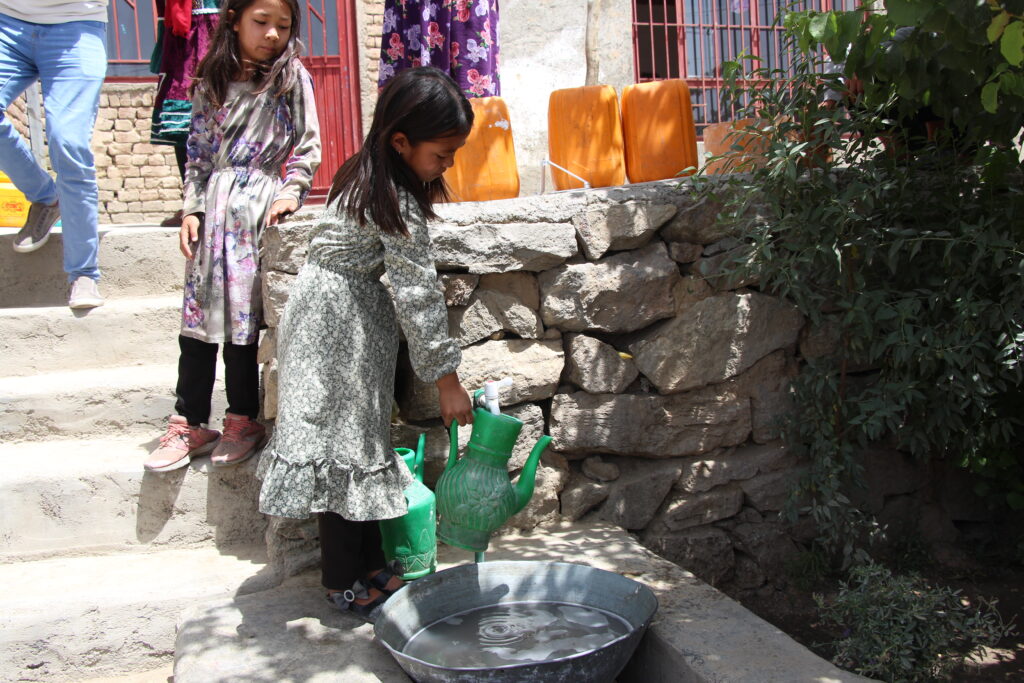
“Before my husband fell into the drug menace, we could afford meat once a week or even a month. [Now] meat is not cooked in our home for months on end,” Khadija says, adding that this Qurbani meat is only the second time her family have been able to eat meat in 5 months.
“No one expected would have meat in our meal today.
“When we had dinner, my children and I prayed for those who paid for our meat and delivered it to us. May Allah SWT reward them abundantly. We are so happy. It’s a different day.”
Rising cost of basic items exacerbating hunger amid crises
Khadija’s story shows the daily struggles single mothers and female-headed households face while trying to support their families in a country that is both emerging from conflict and prone to natural disasters.
But it is likely that she’s revealed only part of her story, as societal norms and shame prevent women from discussing many of the challenges they face in life.
The prices of basic household items such as flour, oil, rice and gas for cooking have almost doubled over the last 2 years, putting them out of the reach of many. In response, many people have been forced to sell their properties, cut back on meals, or send their children to work to put food on the table.
Two years on from the Taliban’s return to power, the people of Afghanistan continue to face great struggles in their daily lives, including finding employment and providing food for themselves and their families.
Afghanistan saw its third straight year of drought last year, which was the worst drought in the country in 30 years. According to UNOCHA, 25 out of 34 provinces experience either severe or catastrophic drought conditions, affecting more than 50% of the population.
This is compounded by worsening economic hardship and the effects of 4 decades of war, which have left half the population in acute hunger.
Amid the growing crises, we are continuing to provide essential services to the people of Afghanistan in 15 provinces across the country, most of them prone to recurrent disasters.
Please help Islamic Relief to continue supporting vulnerable people in Afghanistan.

